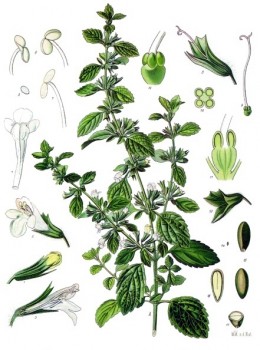Alternative treatments for bursitis and tendinitis
Home Remedies for Bursitis by Sharon Hopkins
Restrict your movement and allow your joints to heal. It may prove to be the best medicine.
A continuous application of hot and cold compression can do the trick, 10 minutes hot, 10 minutes cold and so on and so forth.
Ginger is one of the best known fighters for such kind of pain. It can be applied directly on the skin by making a poultice or can be taken orally to overcome the pain.
Emu oil is known to treat bursitis problem due to high level of linolenic acid - which eases muscle and joint paints. The oleic acid is anti-inflammatory which penetrates the skin to provide the necessary relief.
You can eat alfalfa capsules which consist of rich minerals much needed for recuperation of the bones.
Apply vitamin E oil over the joints to have easy and free movement. Consuming vitamin E capsule is also very beneficial.
Castor oil compression also works in your favor. Apply good amount of castor oil over the affected area and cover it with cotton and then apply heating compression with a heating pad.
Stretching exercises may also provide a positive change in your life.
Warning: The reader of this article should exercise all precautionary measures while following instructions on the home remedies from this article. Avoid using any of these products if you are allergic to it. The responsibility lies with the reader and not with the site or the writer.
Published At: Isnare.com
Foods to avoid if you have Bursitis and Tendinitis
Fatty meats
Refined starches
High fat dairy products
Added sugars
Read the detailed article about these foods and why they should be avoided if you have tendinitis and/or bursitis at Livestrong

RECOMMENDATIONS FROM DR ANDREW WEIL
As an alternative, acupuncture can provide symptomatic relief of the pain of bursitis and is much safer than anti-inflammatory drugs or injections of steroids.
You can also take two 500 mg capsules of powdered ginger once or twice a day. Ginger is an effective natural anti-inflammatory agent. READ MORE
Herbal Therapy for Bursitis
Aromatherapy
Aromatherapists suggest the essential oils of juniper, roman or german chamomile, and cypress for treating bursitis.
Bodywork
Gentle, immediate relief may be found in reflexology, massage, Feldenkrais or Alexander technique.
Chiropractic
Bursitis is sometimes caused by faulty position of the joint. Corrective adjustments are helpful, especially in chronic cases. In acute cases, especially those caused by repetitive motions and the overuse syndrome chiropractic adjustment can also be effective. Chiropractic care may also include physical therapy, such as ultrasound and electromuscle stimulation. A chiropractor may recommend specific exercises to prevent bursitis in the shoulder from progressing to frozen shoulder syndrome, which can happen.
Herbal Therapy
Willow or meadow sweet are both herbs which contain salicylate, a natural pain reliever that can give relief to bursitis and tendinitis. To prepare the tea, steep 1 teaspoon of either dried herb in 1 cup boiling water for 10 minutes; strain and drink 3 cups daily.
Alternatively, you might try a blend of tinctures of meadowsweet, horsetail, and willow bark. Combine equal amounts of the tinctures and take 1 teaspoon of the blend 3 times daily.
A combined tincture of lobelia and cramp bark is also therapeutic when rubbed into muscles to calm the tension produced by bursitis.
Homeopathy
Your homeopathic practitioner may suggest Ruta graveolens to ease the pain of bursitis.
Hydrotherapy
When pain is acute, apply an ice pack for 20 minutes on, 20 minutes off during the first 24 hours. After that use alternating hot and cold compresses up to 3 times daily. Caution: Never use a cold compress for longer than 20 minutes at a time as extended exposure to cold can damage skin.
You also might try soaking in a warm epsom salts bath for 20 to 30 minutes once a week.
Traditional Chinese Medicine
Acupuncture can help reduce the inflammation and stiffness that accompanies bursitis, and it may promote the drainage of excess fluid. The points targeted vary, depending on whether the pain is located in the hip, knee, or shoulder.
Acupressure can be used to alleviate the pain and inflammation associated with bursitis.
Chinese Herbal Therapy
Corydalis Analgesic Tablets might be prescribed to combat bursitis-related pain, and aloe vera can be used as a topical medication. Herb plasters can also be used locally on affected areas.
Thanks to Ashu for this article
Homeopathic treatment for bursitis and tendinitis
Homeopathy is very effective for people experiencing acute (short-term,
sudden onset) tendinitis and bursitis, as well as chronic
(long-standing). There are several homeopathic remedies that may be
useful for these situations. They are listed at Noel Peterson's site Homeopathic Treatment and Natural Care
SPONSORS
Essential Oils for pain relief:
- Balsam
- Basil
- Birch
- Chamomile
- Clary sage
- Jasmine
- Lavender
- Lemon
- Lime
- Mandarin
- Neroli
- Peppermint
- Rose
- Sweet marjoram
- Sandalwood
- Tangerine
- Valerian
- Vetiver
- Wintergreen
- Ylang ylang

Essential oils of pine, lavender, peppermint, cinnamon, rose, clove, frankincense, rosemary, ginger, juniper, bay and birch also are traditionally used as pain relievers and are well-documented analgesic agents.
Put 10-12 drops of any one of these essential oils in one ounce of a carrier oil such as olive or coconut. Shake well and then rub into painful, swollen joints to allay pain and inflammation.
If you suffer from chronic pain, try drinking four to six cups of skullcap infusions daily, or take 10-15 drops of skullcap tincture four to six times daily. Use skullcap as needed, as often as every few minutes, in acute situations. Skullcap quiets the nervous system, and so will be a valuable ally if you suffer from chronic pain.
A combination of equal parts skullcap, St. John's wort, and oatstraw is particularly effective for calming the nervous system, and thus easing pain.
Thanks to Gail Faith Edwards of Blessed Maine Herb Farm


